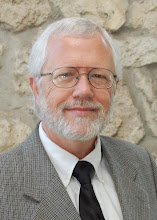 Jews worldwide are entering a timeless zone, a freeze in the year's activities. On Sept. 29, they start the 10-day period between years, known as the High Holy Days.
Jews worldwide are entering a timeless zone, a freeze in the year's activities. On Sept. 29, they start the 10-day period between years, known as the High Holy Days.Jews have lots of sites to explain these days, to themselves as well as outsiders. Best is Aish.com. This beautiful site has a wealth of articles, pictures, videos, even an mp3 of a shofar (ram's horn) -- plus a clear explanaton of its three distinct sounds.
The Rosh Hashana link has an astonishing 50+ list of articles, with titles like "The Womb for the Soul" and "The World Changed -- Did I?" You'll learn why bread is baked round for this day, and why apples and honey are a common treat.
Don't miss the six Flash-powered movies: musicals, animation, a Jewish rap delivered from the Western Wall in Jerusalem. Even a talking-head speech by Aish's Lori Palatnik, on facing God's judgment, is warm and exuberant.
Religion Facts has very basic explanations: four paragraphs and a single quote for the whole period. But it links to a longer item on Rosh Hashana. Included are some interesting facts on why fish and pomegranates are often served on this day.
Then again, much of Religion Facts' material comes from Judaism 101, which is angled toward Orthodox Jews but still understandable to others. Site creator Tracey R. Rich has been compiling it since the early 1990s.
In a classic use of html for effective education, Rich crosslinks her material and provides summaries before adding detail. She also digs up sidelights, like the ban on wearing leather shoes for Yom Kippur.
The United Synagogue of Conservative Judaism has eight articles on the season. One little-known service is called Selichot, preparing people for Rosh Hashana. Another is the remarkable ritual known as Tashlikh, in which people toss bread crumbs into a body of water to symbolize casting away their sins.
Holidays.net has useful content on the holy days, if you can ignore all the ads across the top, down the right side, and sticking into the text -- even those annoying "ContentLink" pop-ups on certain keywords. But the site does have handy bulleted paragraphs, plus articles on occasions like the Yizkor memorial service on Yom Kippur.
Kolel.org tackles the days from a more liberal perspective. It notes that the Hebrew for repentance, teshuvah, actually means "turning" -- as in reviewing how we've lived and how to improve.
But just in case you want to Google the holy days, don't bother to click High Holy Days Lyrics. It'll bring up lyrics, sure, but they have little to do with the holy days. You'll also get hit with a pop-up ad every time you load the homepage.
Also skip High Holy Days. It's from Temple Emanu-El of San Francisco -- which is holding its services for members only.

No comments:
Post a Comment